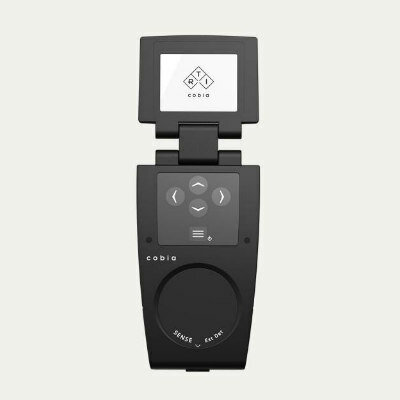International Team of Scientists Create Plan for Accelerated Pipeline for Developing COVID-19 Drug Cocktails
|
By HospiMedica International staff writers Posted on 31 Dec 2021 |

An international team of scientists has created a plan for an accelerated pipeline for developing drug cocktails to battle the COVID-19 pandemic.
The “proactive drug development strategy” could also offer a first line of defense against future pandemics, according to researchers from the University of Virginia School of Medicine (Charlottesville, VA, USA) who are joined by Immunology and Cancer Biology, University of Washington, Fred Hutchinson Cancer Research Center; University of Maryland; and MRI Global, as well as collaborators in Estonia, Finland and Norway.
The pipeline could speed new and better treatments that the newly diagnosed and recently exposed could take at home to prevent serious illness. The approach would allow scientists to be ready with an arsenal of drugs that could be quickly moved into clinical trials when a dangerous new infection appears, whether a coronavirus or another pathogen. The goal: Make effective treatments available in weeks, not months or years.
The scientists believe that prioritizing the development of drug cocktails – treatments that combine two or more medicines – would reduce the burden on health care systems and help prevent disease spread by limiting a virus’ ability to adapt to its hosts. This type of combination approach is already the norm for treating viruses such as HIV. To demonstrate the potential of computer modeling for this purpose, the scientists have developed a model to assess the potential clinical effectiveness of drug pairs for treating COVID-19. Pairing drugs, the researchers say, could make for treatments that are more effective than individual drugs alone. Identifying drugs with this type of “synergy,” they say, could potentially turn two medicines of only modest benefit into a potent treatment. The scientists emphasize that better treatments for COVID-19 will not supplant the need for vaccination and are a complement to existing strategies. But they say their strategy could lead to better outcomes for patients who contract COVID-19 – or the next dangerous virus waiting in the wings.
“We need to proactively develop drug cocktails against virus families as a whole – for example, all coronaviruses – to be ready on day one if a new virus or variant emerges. The cocktail should be low-cost, easy to transport and distribute, and easy to self-administer – therefore available to people across the globe,” said researcher Judith M. White, a professor emeritus at the University of Virginia School of Medicine. “We hope that this concept of ‘smart drug cocktails’ – smart because of the choice of drugs for testing and computer modeling of their effectiveness in humans – will be the basis for a robust, coordinated effort against coronaviruses and other pathogenic viruses, such as Zika and Lassa fever viruses, just to name a few.”
Related Links:
University of Virginia School of Medicine
Latest COVID-19 News
- Low-Cost System Detects SARS-CoV-2 Virus in Hospital Air Using High-Tech Bubbles
- World's First Inhalable COVID-19 Vaccine Approved in China
- COVID-19 Vaccine Patch Fights SARS-CoV-2 Variants Better than Needles
- Blood Viscosity Testing Can Predict Risk of Death in Hospitalized COVID-19 Patients
- ‘Covid Computer’ Uses AI to Detect COVID-19 from Chest CT Scans
- MRI Lung-Imaging Technique Shows Cause of Long-COVID Symptoms
- Chest CT Scans of COVID-19 Patients Could Help Distinguish Between SARS-CoV-2 Variants
- Specialized MRI Detects Lung Abnormalities in Non-Hospitalized Long COVID Patients
- AI Algorithm Identifies Hospitalized Patients at Highest Risk of Dying From COVID-19
- Sweat Sensor Detects Key Biomarkers That Provide Early Warning of COVID-19 and Flu
- Study Assesses Impact of COVID-19 on Ventilation/Perfusion Scintigraphy
- CT Imaging Study Finds Vaccination Reduces Risk of COVID-19 Associated Pulmonary Embolism
- Third Day in Hospital a ‘Tipping Point’ in Severity of COVID-19 Pneumonia
- Longer Interval Between COVID-19 Vaccines Generates Up to Nine Times as Many Antibodies
- AI Model for Monitoring COVID-19 Predicts Mortality Within First 30 Days of Admission
- AI Predicts COVID Prognosis at Near-Expert Level Based Off CT Scans
Channels
Artificial Intelligence
view channel
AI-Powered Algorithm to Revolutionize Detection of Atrial Fibrillation
Atrial fibrillation (AFib), a condition characterized by an irregular and often rapid heart rate, is linked to increased risks of stroke and heart failure. This is because the irregular heartbeat in AFib... Read more
AI Diagnostic Tool Accurately Detects Valvular Disorders Often Missed by Doctors
Doctors generally use stethoscopes to listen for the characteristic lub-dub sounds made by heart valves opening and closing. They also listen for less prominent sounds that indicate problems with these valves.... Read moreCritical Care
view channel
Deep-Learning Model Predicts Arrhythmia 30 Minutes before Onset
Atrial fibrillation, the most common type of cardiac arrhythmia worldwide, affected approximately 59 million people in 2019. Characterized by an irregular and often rapid heart rate, atrial fibrillation... Read more
Breakthrough Technology Combines Detection and Treatment of Nerve-Related Disorders in Single Procedure
The peripheral nervous system (PNS) serves as the communication network that links the brain and spinal cord to every other part of the body. It consists of two parts: the somatic nervous system, which... Read moreSurgical Techniques
view channel
Hydrogel-Based Miniaturized Electric Generators to Power Biomedical Devices
The development of engineered devices that can harvest and convert the mechanical motion of the human body into electricity is essential for powering bioelectronic devices. This mechanoelectrical energy... Read moreWearable Technology Monitors and Analyzes Surgeons' Posture during Long Surgical Procedures
The physical strain associated with the static postures maintained by neurosurgeons during long operations can lead to fatigue and musculoskeletal problems. An objective assessment of surgical ergonomics... Read more.jpg)
Custom 3D-Printed Orthopedic Implants Transform Joint Replacement Surgery
The evolving field of 3D printing is revolutionizing orthopedics, especially for individuals requiring joint replacement surgeries where traditional implants fail to provide a solution. Although most people... Read more
Cutting-Edge Imaging Platform Detects Residual Breast Cancer Missed During Lumpectomy Surgery
Breast cancer is becoming increasingly common, with statistics indicating that 1 in 8 women will develop the disease in their lifetime. Lumpectomy remains the predominant surgical intervention for treating... Read morePatient Care
view channel
Surgical Capacity Optimization Solution Helps Hospitals Boost OR Utilization
An innovative solution has the capability to transform surgical capacity utilization by targeting the root cause of surgical block time inefficiencies. Fujitsu Limited’s (Tokyo, Japan) Surgical Capacity... Read more
Game-Changing Innovation in Surgical Instrument Sterilization Significantly Improves OR Throughput
A groundbreaking innovation enables hospitals to significantly improve instrument processing time and throughput in operating rooms (ORs) and sterile processing departments. Turbett Surgical, Inc.... Read more
Next Gen ICU Bed to Help Address Complex Critical Care Needs
As the critical care environment becomes increasingly demanding and complex due to evolving hospital needs, there is a pressing requirement for innovations that can facilitate patient recovery.... Read moreGroundbreaking AI-Powered UV-C Disinfection Technology Redefines Infection Control Landscape
Healthcare-associated infection (HCAI) is a widespread complication in healthcare management, posing a significant health risk due to its potential to increase patient morbidity and mortality, prolong... Read moreHealth IT
view channel
Machine Learning Model Improves Mortality Risk Prediction for Cardiac Surgery Patients
Machine learning algorithms have been deployed to create predictive models in various medical fields, with some demonstrating improved outcomes compared to their standard-of-care counterparts.... Read more
Strategic Collaboration to Develop and Integrate Generative AI into Healthcare
Top industry experts have underscored the immediate requirement for healthcare systems and hospitals to respond to severe cost and margin pressures. Close to half of U.S. hospitals ended 2022 in the red... Read more
AI-Enabled Operating Rooms Solution Helps Hospitals Maximize Utilization and Unlock Capacity
For healthcare organizations, optimizing operating room (OR) utilization during prime time hours is a complex challenge. Surgeons and clinics face difficulties in finding available slots for booking cases,... Read more
AI Predicts Pancreatic Cancer Three Years before Diagnosis from Patients’ Medical Records
Screening for common cancers like breast, cervix, and prostate cancer relies on relatively simple and highly effective techniques, such as mammograms, Pap smears, and blood tests. These methods have revolutionized... Read morePoint of Care
view channel
Critical Bleeding Management System to Help Hospitals Further Standardize Viscoelastic Testing
Surgical procedures are often accompanied by significant blood loss and the subsequent high likelihood of the need for allogeneic blood transfusions. These transfusions, while critical, are linked to various... Read more
Point of Care HIV Test Enables Early Infection Diagnosis for Infants
Early diagnosis and initiation of treatment are crucial for the survival of infants infected with HIV (human immunodeficiency virus). Without treatment, approximately 50% of infants who acquire HIV during... Read more
Whole Blood Rapid Test Aids Assessment of Concussion at Patient's Bedside
In the United States annually, approximately five million individuals seek emergency department care for traumatic brain injuries (TBIs), yet over half of those suspecting a concussion may never get it checked.... Read more
New Generation Glucose Hospital Meter System Ensures Accurate, Interference-Free and Safe Use
A new generation glucose hospital meter system now comes with several features that make hospital glucose testing easier and more secure while continuing to offer accuracy, freedom from interference, and... Read moreBusiness
view channel
Johnson & Johnson Acquires Cardiovascular Medical Device Company Shockwave Medical
Johnson & Johnson (New Brunswick, N.J., USA) and Shockwave Medical (Santa Clara, CA, USA) have entered into a definitive agreement under which Johnson & Johnson will acquire all of Shockwave’s... Read more

















